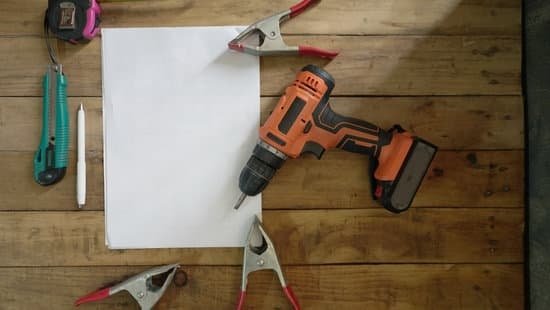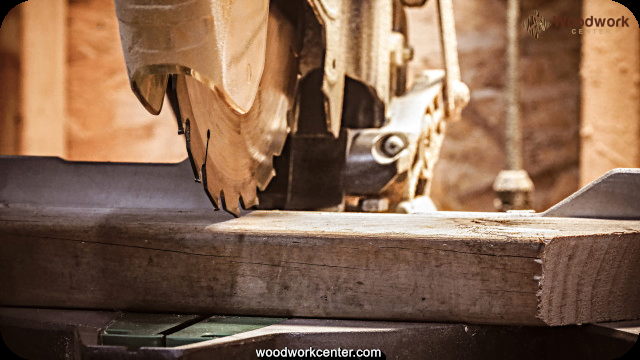Essential Woodworking Power Tools
There are a few essential woodworking power tools that every woodworker should have in their shop. These tools will help you complete most woodworking projects, and they are versatile enough to handle a wide variety of tasks.
The power drill is one of the most important tools in your shop. A power drill can drill holes in wood, metal, and plastic, and it can also drive screws. You’ll use your power drill for a variety of tasks, from drilling pilot holes to driving screws.
Another essential power tool is the power saw. A power saw can cut through wood, metal, and plastic, and it can be used to make a variety of cuts, such as rip cuts, crosscuts, and miter cuts.
A power router is another essential tool. A power router can be used to rout out grooves and dadoes, to shape edges, and to make decorative profiles.
Finally, a jigsaw is a must-have tool. A jigsaw can be used to cut curves and intricate shapes in wood.
These are just a few of the essential woodworking power tools. With these tools, you’ll be able to complete most woodworking projects.
Beginner Hand Woodworking Tools
Hand woodworking tools are the tools used by hand to create ornaments, furniture, boxes, and other items from wood. The most basic hand woodworking tool is the carving knife, which is used to cut away small pieces of wood to create the desired shape. Other common hand woodworking tools include chisels, gouges, and coping saws.
One of the advantages of using hand woodworking tools is that they allow for great precision and control. Additionally, hand woodworking tools are relatively inexpensive and easy to learn how to use. However, hand woodworking tools can be difficult to use for larger projects and can be slow and tedious.
If you are interested in learning hand woodworking, there are a number of resources available to help you get started. There are many books and online tutorials that can teach you the basics of using hand woodworking tools. Additionally, there are many classes and workshops available that will teach you more advanced techniques.
Basic Tool Kit For Woodworking
A tool kit for woodworking is important for the safety and accuracy of your work. There are many different types of tool kits, and the one you choose depends on the type of woodworking you are doing.
The most basic tool kit for woodworking is a hammer, screwdriver, and tape measure. These are essential for any type of woodworking project. You may also want to include a saw, drill, and clamps in your tool kit.
The hammer is used to drive nails and screws. The screwdriver is used to tighten and loosen screws. The tape measure is used to measure the length and width of wood pieces.
The saw is used to cut wood. The drill is used to drill holes in wood. The clamps are used to hold wood pieces together while they are being glued or nailed.
There are many other types of tools that can be useful for woodworking, such as chisels, planes, and routers. However, these are not essential for most projects.
When choosing a tool kit for woodworking, make sure to select a kit that includes the tools you will need for the projects you plan to do.
Aluminum Corrosion On Woodworking Tools
There are a few things that you need to take into account when using aluminum tools on woodworking projects. Aluminum is a soft metal, meaning that it can easily be scratched or dented. In addition, aluminum is a reactive metal and will corrode when in contact with other metals, such as iron or steel. This can cause the aluminum to become pitted and can lead to rust formation on the tool.
In order to prevent aluminum corrosion on woodworking tools, it is important to take a few precautions. First, always use a sharp blade on your aluminum tools. A dull blade will cause the aluminum to become scratched and will increase the chances of corrosion. Second, make sure that your tools are clean and free of any dirt or debris. Foreign objects can also cause corrosion. Finally, keep your tools in a dry place. Excessive moisture can cause the aluminum to corrode.
If your aluminum tools have already started to corrode, there are a few things that you can do to try and stop the corrosion. First, clean the tools with a wire brush to remove any dirt or debris. Next, apply a coat of paint or a sealant to the tools. This will help to protect the aluminum from further corrosion. Finally, store the tools in a dry place.
Non Electric Woodworking Tools
There are many reasons to use non electric woodworking tools. Perhaps you live in an area where there is no electricity, or you just want to add some more primitive tools to your collection. Whatever the reason, there are a few basic tools that are essential for any non electric woodworking shop.
The first tool is a hand saw. There are many different types of hand saws, but all of them have one thing in common- they are designed to cut wood. A good hand saw will allow you to make accurate and clean cuts, which is essential for any woodworking project.
The next tool is a hammer. A hammer is essential for driving nails, and it can also be used to remove nails and other hardware. Choose a hammer that is comfortable for you to use.
The third tool is a chisel. A chisel is used for cutting and shaping wood. It can also be used to remove excess material.
The fourth tool is a screwdriver. A screwdriver is used for driving screws and for removing screws. It is also useful for prying things open.
The fifth tool is a tape measure. A tape measure is essential for measuring the length and width of wood pieces. It can also be used for measuring the distance between two points.
These are the five essential tools for any non electric woodworking shop. With these tools, you can do a wide variety of woodworking projects.
“

Hi everyone! I’m a woodworker and blogger, and this is my woodworking blog. In my blog, I share tips and tricks for woodworkers of all skill levels, as well as project ideas that you can try yourself.





